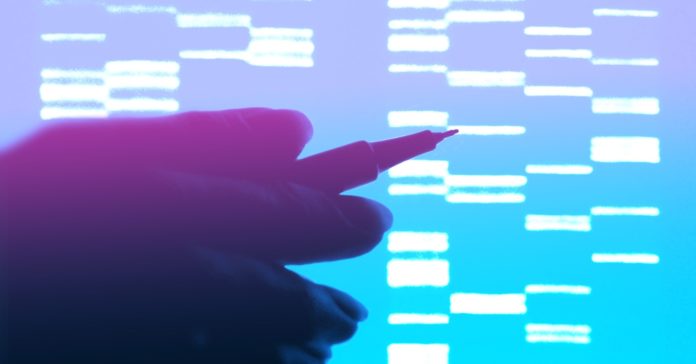
Despite major advances in modern genome-wide analysis techniques, it has proven difficult to identify genetic factors affecting risk for depression, say the authors of a new review article published in the Harvard Review of Psychiatry.
“Given the established heritability of depression, there is every reason to expect that with larger studies we will be able to identify genetic loci,” said Dr. Erin C. Dunn, ScD, MPH, of Massachusetts General Hospital and colleagues. “Identifying ways to generate these larger samples is one of the many challenges before us.”
In the article, Dr. Dunn and her coauthors review recent findings and future directions in research on the genetics of depression, one of the most common, disabling, and costly mental health conditions. Understanding its causes — including genetic and environmental factors and the interactions between them — has important implications for prevention and treatment, the authors say.
So Far, Limited Success in Identifying Genetic Factors in Depression
Depression, like many mental disorders, is known to run in families, indicating that at least some of the risk is genetic. The strongest evidence of the heritability of depression comes from research with identical, or monozygotic, twins. Because they share the same exact genetic code, identical twins can help scientists disentangle the environmental and genetic influences on disease.
Based on these studies, it’s estimated that genetic factors account for about 40 percent of the variation in population risk of depression, although some studies have reported heritability estimates as high as 70 percent (this means that when one identical twin becomes depressed, the other twin will develop depression 40-70 percent of the time).
It’s important to note, however, that heritability refers to the extent to which genetic factors explain the population risk of depression, not the individual risk. In other words, 40 percent heritability could mean that in most cases of depression, around 40 percent of the cause is genetic, and around 40 percent is unrelated to genes (psychological or physical factors). Or it could mean that in some cases, the tendency to become depressed is almost completely genetic, and in other cases it is not really genetic at all. We don’t know the answer yet.
In recent years, techniques such as genome-wide association studies (GWAS) have accelerated efforts to identify the genetic factors underlying a wide range of diseases. But so far, GWAS of depression have found no associations. The limited success of GWAS in identifying depression-associated genetic variants is in contrast to the results for other psychiatric disorders. For example, studies have identified more than 100 genetic variants for schizophrenia and bipolar disorder.
What’s more, genetic factors previously suggested as contributors to depression risk — such as genes affecting dopamine or serotonin neurotransmission — haven’t been confirmed.
Possible Gene-Environment Effects?
Another issue is that GWAS have not as of yet accounted for the role of environment. Studies of gene-by-environment (GxE) look at how genes may modify the effect of environmental factors on depression risk (or vice versa).
A 2003 study suggested an interaction between a gene variant affecting serotonin and stressful life events — for example, childhood maltreatment. Thus far, studies have yielded conflicting results for GxE — while some studies supported this GxE effect, others showed no associations with the serotonin variant. However, other GxE studies have suggested more consistent associations for other genes, including genes involved in regulating the stress response.
Dr. Dunn thinks the combination of GWAS and GxE may help yield new insights. “Large-scale GxE studies may lead to new discoveries about the genetic basis of depression,” she said.
The researchers discuss the reasons for the lack of success of GWAS and GxE studies, and the many challenges that lie ahead. Because of the complex genetic architecture of depression, very large studies will be needed to detect the individually small contributions of multiple genes. Approaches to account for the multiple types of depression (major depression, dysthymia, and bipolar disorder) will be needed as well, the authors say.
Meanwhile, Dr. Dunn and colleagues believe that research on the genetics of depression is at “at an exciting, yet challenging crossroad,” with the potential for important discoveries that they hope will one day alleviate the global burden of depression.
“Although the search to identify genes associated with depression has proven challenging, many scientists worldwide are working hard to identify its genetic underpinnings,” added Dr. Dunn. “With this knowledge, we can ultimately help prevent the onset of the disorder and improve the lives of those who already suffer.”
